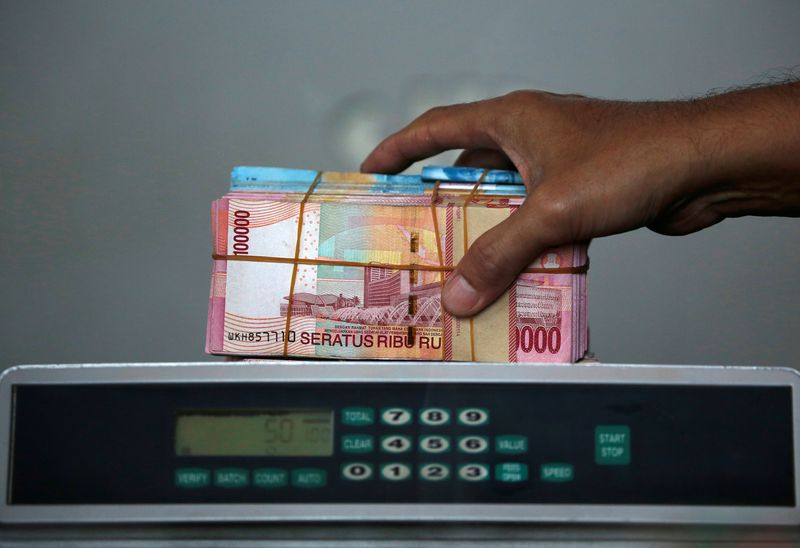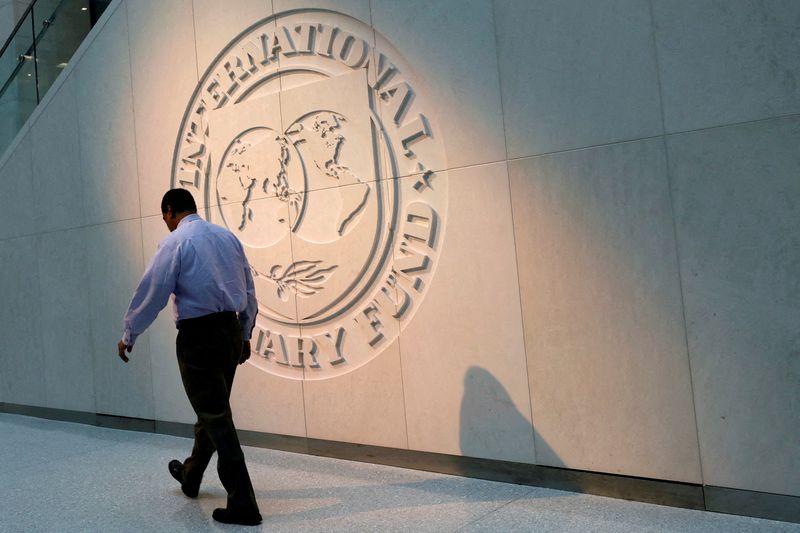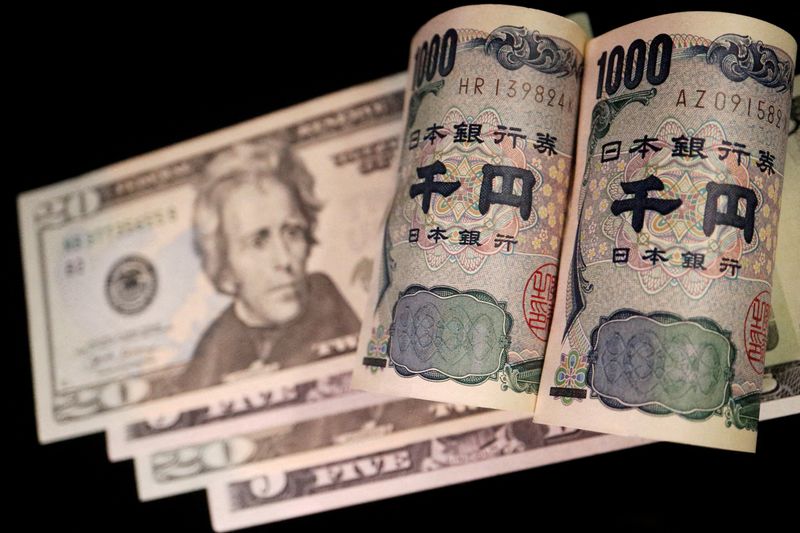Select Language

LONDON (Reuters) - Global property and casualty insurers showed "alarming" underwriting losses in 2022 as natural catastrophes increased and risk models failed to keep up, a report from consultants Capgemini said on Wednesday.
Global insured losses from natural catastrophes have been surpassing $100 billion annually in recent years, driven higher by issues such as winter storms. Industry sources see climate change and increased building in exposed areas as contributing to the losses.
The insurers' global combined ratio, a measure of claims and expenses against premium revenue, was 103% in 2022, Capgemini said. A level above 100 indicates an underwriting loss. Property insurers have suffered three years of underwriting losses in the past four years, the report said.
Only 27% of insurance executives surveyed believe their firms have advanced predictive modelling capabilities.
"Accurate risk prediction and pricing are becoming increasingly challenging and leading to insurability concerns," Anirban Bose, Capgemini financial services strategic business unit CEO, said in the report.
The report gathered information from 18 insurance markets, including Britain, Hong Kong, India and the United States, through polling of insurance customers and interviews with insurance executives and underwriters.

By Andrea Shalal and David Lawder
WASHINGTON (Reuters) -U.S. Treasury Secretary Janet Yellen on Tuesday warned that the U.S. intends to hit Iran with new sanctions in coming days over its unprecedented attack on Israel, and these actions could seek to reduce Iran's capacity to export oil.
"With respect to sanctions, I fully expect that we will take additional sanctions action against Iran in the coming days," Yellen said told a news conference on the sidelines of the International Monetary Fund and World Bank spring meetings in Washington.
"We don't preview our sanctions tools. But in discussions I've had, all options to disrupt terrorist financing of Iran continue to be on the table," Yellen added.
She said that the Treasury and State Department have taken previous action to contain Iran's "destabilizing" behavior by diminishing its ability to export oil.
"Clearly, Iran is continuing to export some oil. There may be more that we could do. I don't want to preview our actual sanctions activities, but certainly that remains in focus as a possible area that we could address."
Treasury was working to enlist the aid of China, G7 partners and other major global suppliers to erode Iran's ability to continue to export oil and to get the microelectronics needed for the drones it used to attack Israel and was selling to Russia, a senior Treasury official told reporters.
The official said a jump in oil prices had been driven mainly by geopolitical uncertainty, not U.S. sanctions, and noted that past sanctions had not led to oil price increases.
"We're going to have conversations with all major suppliers around the world. That includes countries in the G7; that includes China. All of these countries have to play a role in constraining Iran's ability to get access to the goods they are using to build weapons," the official said.
In prepared remarks, Yellen said Iran's attack on Israel last weekend and its financing of militant groups in Gaza, Lebanon, Yemen and Iraq threatened stability in the Middle East and could cause economic spillovers.
The United States is using financial sanctions to isolate Iran and disrupt its ability to fund proxy groups and support Russia's war in Ukraine, Yellen said.
Treasury has targeted more than 500 individuals and entities connected to terrorism and terrorist financing by the Iranian regime and its proxies since the start of the Biden administration in January 2021, Yellen said.
That has included targeting Iran’s drone and missile programs and its financing of the Palestinian militant group Hamas, the Houthis in Yemen, Hezbollah in Lebanon, and Iraqi militia groups, she said.
"From this weekend’s attack to the Houthi attacks in the Red Sea, Iran’s actions threaten the region’s stability and could cause economic spillovers," Yellen said, without giving details.
Iran on Saturday launched more than 300 drones and missiles against Israel, its first direct attack on the country, in retaliation for a suspected Israeli air strike on its embassy compound in Damascus on April 11 that killed elite military officers.
Israel's military said that it shot down almost all the drones and missiles, and that the attack caused no deaths, but the situation has increased fears of open warfare between the longtime foes.
In Gaza, more than 33,000 Palestinians have been killed in the Israeli offensive launched against Hamas after the group attacked Israel on Oct. 7, killing 1,200 people and taking 253 hostages, according to Israeli tallies.
Yellen said Washington was continuing to use economic tools to pressure Hamas, but said Treasury was emphasizing that its sanctions should not impede life-saving aid.
She called for urgent action to end Palestinian suffering in the narrow enclave, noting that Gaza's entire population of more than 2 million people was facing acute food insecurity and that most of the population had been displaced.
"It is incumbent on all of us here at these meetings to do everything in our power to end this suffering," she said.
Yellen noted that Washington was also using sanctions to target extreme settler violence in the West Bank, while working to ensure a functioning banking system there and supporting IMF programs in Jordan and Egypt.

By Rae Wee and Stefanno Sulaiman
SINGAPORE/JAKARTA (Reuters) - Indonesia's economy was primed for monetary easing later this year, but an unwelcome plunge in its currency is complicating matters for Bank Indonesia and could force it to grudgingly raise rates as early as next week.
As Indonesian markets returned from a long Eid al-Fitr holiday this week, the rupiah sank to a four-year low against a dollar buoyed by expectations that a hot U.S. economy will force the Fed to keep rates higher for longer.
As it slid past the psychological level of 16,000 to a dollar, stacking up a 5.25% loss for the year, some market participants felt Bank Indonesia (BI) might need to do something as drastic as a rate rise to arrest the slide.
BI is the only central bank in the world whose main mandate is currency stability.
Through 2023 and so far this year, it has used a range of intervention tools to keep the rupiah reined in as the dollar soared. Until last month, it was even expected to be among the first central banks in emerging Asia to start cutting rates.
As BI prepares to review policy on April 23, the thinking is changing. A hike would be its first since October.
"I think the risk of a hike is not small. I wouldn't put it as a baseline because they did hike previously, but I would think it's not small," said Alvin Tan, head of Asia FX strategy at RBC Capital Markets.
"I think definitely, the rhetoric will have to turn a bit more hawkish in order to lend support to the currency."
A rate rise would help bump up the yields that have been the rupiah's big appeal historically, as well as the cause of its frequent bouts of volatility. That's even as tame inflation and growth concerns do not call for one.
Once a popular carry-trade currency, Indonesia's high-yielding bond market has lost appeal due to currency volatility and the wafer-thin spreads it offers over dollar markets.
Spreads between 10-year U.S. Treasuries and Indonesian government bonds were as wide as 7.5 percentage points four years ago. Now they are two points.
Foreigners hold just 14% of outstanding Indonesian government securities, while back in December 2020 they owned a quarter.
MORE NEEDED
Bank Indonesia has been using a unique mix of direct rupiah buying in the spot foreign exchange and domestic non-deliverable forwards (DNDF) markets as well as purchases of government bonds to stem the rupiah's decline.
To be sure, the efforts have helped keep the rupiah from falling as much as peers such as the Korean won.
BI's intervention in the DNDF market has also tamped down expectations of rupiah depreciation, with markets expecting a mere 0.5% decline in the next six months.
Edi Susianto, BI's head of monetary department, told Reuters the central bank has been working with "relevant stakeholders" to prevent excessive rupiah volatility, for instance by staggering the demand for dollars from state-owned energy company Pertamina.
"So far the coordination with Pertamina is going very well. If the demand is for later, then it is recommended to not enter the FX market for now," said Susianto.
The central bank spent about $6 billion in the first quarter alone, which left its foreign exchange reserves at $140.4 billion at the end of March.
But BI could be close to exhausting all its options, particularly as Fed rate cut bets recede.
Daniel Tan, portfolio manager at Grasshopper Asset Management, said his fund has bought dollar-denominated bonds issued by Indonesian state firms this year, rather than risking exposure to rupiah assets.
Some investors are betting on eventual Fed rate cuts later this year giving Indonesia's rupiah some reprieve.
Jerome Tay, investment manager of Asia fixed income at abrdn, said the firm is overweight on both rupiah on a relative value basis and Indonesian government bonds, citing reasons such as tame inflation, the government's cash surplus and expectations for low volatility.
"Foreign positioning is still very light and bonds are well supported by domestic investors," he said, adding he expects foreign money to return when the Fed starts easing policy.
For now, a foot-dragging Fed continues to cast a cloud.
Bank of America's Asia and ASEAN economist Kai Wei Ang has pushed out expectations for BI's first rate cut to December from June, aligning with the Fed.
"Any BI hike in response to sharp currency depreciation pressure cannot be entirely ruled out, but it could be delivered in a manner to 'surprise' the market and justified on the basis of upside risks to inflation from imported inflation and energy."

By Francesco Guarascio
HANOI (Reuters) - Vietnam has mounted an "unprecedented" rescue of Saigon Joint Stock Commercial Bank (SCB), a lender engulfed in the nation’s biggest financial fraud, according to three bank documents and new official information provided to Reuters by a person with access to the documents.
"Without lending, SCB will collapse," according to the new information provided to Reuters. "If the lending continues, the national treasury will gradually dry up."
Reuters is not identifying the source more specifically due to the sensitivity of the matter.
The new information also described the situation as “unprecedented” for the massive volume of the cash injections, the complexity of the operation and the scale of existing and potential damage to Vietnam’s financial system.
Reuters was unable to establish whether the conclusions about the impact on state coffers were broadly shared by other officials currently involved with monitoring SCB.
Vietnam's public debt was stable last year at 37% of gross domestic product, while the budget deficit widened slightly to 4.4% of GDP. Foreign reserves were around $100 billion at the end of the year, according to the central bank. That is up from about $90 billion at the end of October, according to the independent regional watchdog ASEAN+3 Macroeconomic and Research Office.
As of the start of April, the Southeast Asian nation’s central bank had pumped $24 billion in "special loans" into SCB, according to one of the bank documents seen by Reuters, which provides daily updates since March 29 on overall injections from the central bank.
Lending has slowed slightly but averaged more than $900 million a month in the past five months, according to that document, a second document with updates from March 15 to March 20, and a third document from November with monthly updates from October 2022 to October 2023.
The central bank did not reply to requests for comment about the rescue effort. The finance ministry referred a question to the central bank. SCB initially told Reuters it would circulate the news agency's request for comment, but did not respond to subsequent emails. An SCB official declined to comment when contacted by phone.
RUN ON BANK AFTER TYCOON'S ARREST
The State Bank of Vietnam's previously unreported cash injections into SCB amount to 5.6% of the nation's annual economic output, or about one-fourth of Vietnam's foreign-exchange reserves.
The central bank placed SCB under its supervision to stem a run on the bank sparked by the October 2022 arrest of real estate tycoon Truong My Lan. Since then, SCB has been using the injections to cover cash withdrawals, according to one of the bank documents, which SCB sent to the central bank in November to account for its use of the loans.
After the central bank stepped in, SCB's deposits plunged 80% to about $6 billion by December 2023, according to the new official information from the source. SCB could run out of deposits by mid-year at the current pace, and bad loans had surged to 97.08% of SCB's credit balance as of October, it said.
Lan, the tycoon whose October 2022 arrest sparked the bank run, was sentenced to death on Thursday after being found guilty of masterminding the fraud. She had pleaded not guilty to embezzlement and bribery for allegedly siphoning off $12.5 billion in loans from SCB to shell companies while effectively controlling SCB through proxies.
Lan, formerly a prominent figure in Vietnamese finance, will appeal the verdict of the People's Court of Ho Chi Minh City, one of her lawyers said.
Despite the official support, as of December SCB continued to face liquidity problems and at times struggled to settle payments on time when its customers transferred money to other banks, and to process payments via the country's main clearing system, according to the new information. This affected customer "psychology" and created risks to the entire banking and financial system, it said.
The central bank had provided SCB, previously one of the country's largest commercial lenders by deposits, with 592.7 trillion dong ($23.72 billion) in "special loans" as of April 2, according to a recent update produced by the bank on the matter, seen by Reuters.
That was up from 478 trillion dong at the end of October, according to the SCB document that was sent to the central bank. That indicates injections of 23 trillion dong ($910 million) a month since November.
This has slowed from the initial average of $3.7 billion a month the central bank initially injected in October and November 2022 and the monthly pace of nearly $1.2 billion from then until October 2023, the bank document shows.
BANK RESTRUCTURING SOUGHT
Vietnam's banking sector is already facing heightened risks from prolonged turmoil in the real estate sector. The fraud prosecution is part of the authorities' "blazing furnace" anti-corruption campaign, which triggered the real estate crisis, weighing on the economy and clouding the outlook for banks.
The central bank and the government have repeatedly sought help for SCB from the private sector, specifically calling on foreign investors, state media say, despite restrictions such as a 30% cap on combined foreign ownership of Vietnamese banks.
Late last year the central bank assigned private real estate company Sungroup to craft a plan to restructure SCB, according to the recent information from the source and three people familiar with the plan. Sungroup did not reply to a request for comment.
Reuters could not determine whether the Sungroup plan has been approved.
Any restructuring plan would hinge on the evaluation of real estate assets used by Lan and her companies as collateral for loans, but the legal status of those assets is often unclear, as many are still seeking permits while some violated rules on public land or permits, according to the new information.
Some of the assets include valuable properties in high-end districts in Ho Chi Minh City but most are unfinished projects.
The Lan family estimated the assets at $30 billion, a family representative told Reuters this month, while the market appraisal firm Hoang Quan, hired by the central bank for an assessment, valued them around $12 billion, according to a November public document from the police, which detailed Lan’s alleged wrongdoing.
Some of Lan's Hong Kong business partners have expressed interest in the assets, Reuters reported earlier this month. They did not respond to requests for further comment about their interest in the assets after Lan’s trial verdict.

By David Lawder
WASHINGTON (Reuters) - The global economy is set for another year of slow but steady growth, the International Monetary Fund said on Tuesday, with U.S. strength pushing world output through headwinds from lingering high inflation, weak demand in China and Europe, and spillovers from two regional wars.
The IMF forecast global real GDP growth of 3.2% for 2024 and 2025 - the same rate as in 2023. The 2024 forecast was revised upward by 0.1 percentage point from the previous World Economic Outlook's estimate in January, largely due to a significant upward revision in the U.S. outlook.
"The global economy continues to display remarkable resilience with growth holding steady and inflation declining, but many challenges still lie ahead," Pierre-Olivier Gourinchas, the IMF's chief economist, told reporters.
A potential escalation of the Middle East conflict after Iran's rocket and drone attack on Israel could have a "strong effect" on limiting growth, he said, adding that it would raise oil prices and inflation, triggering tighter monetary policy from central banks.
The U.S. Treasury is preparing to hit Iran with new sanctions in coming days that could limit its ability to export oil, U.S. Treasury Secretary Janet Yellen said on Tuesday.
The report described an "adverse scenario" in which a Middle East escalation would lead to a 15% increase in oil prices and higher shipping costs would hike global inflation by about 0.7 percentage points.
The IMF forecast that global median headline inflation will fall to 2.8% by the end of 2024 from 4% last year, and to 2.4% in 2025.
U.S., EUROPE DIVERGE
The IMF revised its forecast for 2024 U.S. growth sharply upward to 2.7% from the 2.1% projected in January, on stronger-than-expected employment and consumer spending. It expects the delayed effect of tighter monetary and fiscal policy to slow U.S. growth to 1.9% in 2025, though that also was an upward revision from the 1.7% estimate in January.
European Central Bank President Christine Lagarde has cited the stark divergence between the U.S. and Europe, which is facing slower growth and faster-falling inflation.
The latest IMF forecasts bear this out, with a downward revision to the euro zone 2024 growth forecast to 0.8% from 0.9% in January, primarily due to weak consumer sentiment in Germany and France. Britain's 2024 growth forecast was revised down by 0.1 percentage point to 0.5% amid high interest rates and stubbornly high inflation.
CHINA PROPERTY WOES
The IMF left unchanged its forecast for China's 2024 growth to fall to 4.6% from 5.2% in 2023, with a further drop to 4.1% for 2025. But it warned that the lack of a comprehensive restructuring package for the country's troubled property sector could prolong a downturn in domestic demand and worsen China's outlook.
Such a situation could also intensify deflationary pressures, leading to a surge in cheap exports of manufactured goods that could stoke trade retaliation by other countries - a scenario that Yellen warned about during a trip to China earlier this month.
Gourinchas said, however, that China's stronger-than-expected first-quarter growth may prompt an upward revision to the outlook.
The IMF recommended that China accelerate the exit of non-viable developers and promote the completion of unfinished housing projects, while supporting vulnerable households to help restore consumer demand.
But the global lender noted bright spots in some big emerging market countries, raising its growth forecast for Brazil in 2024 by half a percentage point to 2.2% and increasing the forecast for India's growth by 0.3 percentage point to 6.8%.
It noted that Group of 20 large emerging market countries are playing a bigger role in the global trading system and have the capability to shoulder more of the growth burden going forward.
But the IMF said low-income developing countries continue to struggle with post-pandemic adjustments and greater levels of economic "scarring" than middle-income emerging markets. As a group, these low-income developing countries saw their 2024 growth forecast cut to 4.7% from an estimate of 4.9% in January.
RUSSIAN RESILIENCE
In one of the biggest surprises, Russia's 2024 growth forecast was increased to 3.2% from the 2.6% projected in January. The report said the increase partly reflected continued strong oil export revenues amid higher global oil prices despite a price-cap mechanism imposed by Western countries, as well as strong government spending and investment related to war production, along with higher consumer spending in a tight labor market. The IMF also upgraded Russia's 2025 growth forecast to 1.8% from 1.1% in January.
Ukraine's growth, which is highly dependent on economic aid from the West, is forecast to slow to 3.2% in 2024 and accelerate to 6.5% in 2025.
While initial price spikes for grains, oil and other commodities have faded since Russia's 2022 invasion of Ukraine, a widening of the conflict could cause them to intensify.

By Brigid Riley
TOKYO (Reuters) -The dollar rose to a five-month high against major peer currencies on Tuesday following hotter-than-expected U.S. retail sales figures, raising worries of an intervention from Tokyo as the yen languished at its lowest since 1990.
The Chinese yuan edged marginally lower even after GDP data for China's first quarter beat expectations in a boost for policymakers trying to shore up confidence in the face of a protracted property crisis.
Data on Monday showed U.S. retail sales rose 0.7% last month, compared with a 0.3% rise that economists polled by Reuters had forecast. Data for February was revised higher to show sales rebounding 0.9% for the largest gain in just over a year, much stronger than the previously reported 0.6%.
The latest data has raised more questions about when the Federal Reserve could begin cutting interest rates, following robust employment gains in March and a pick-up in consumer inflation.
Markets are now pricing in a 41% chance of the Fed cutting rates in July, compared with around 50% before the data, according to CME FedWatch tool. The likelihood of the first cut coming in September has bumped up to nearly 46%.
"I just see no chance of a July cut, assuming we’re all looking at the same data," said Matt Simpson, senior market analyst at City Index.
Underlining the market bets, the president of the San Francisco Federal Reserve Bank, Mary Daly, said late on Monday in the United States that there is "no urgency" to cut U.S. interest rates.
The U.S. dollar index touched 106.39 on Tuesday, the highest since Nov. 2.
In the face of dollar strength, the yen breached 154 per dollar to its weakest in 34 years.
That kept traders on high alert for yen-buying intervention from Japanese authorities. With hedge funds building up their largest bets against the currency in 17 years, a rebound in the yen could trigger a significant rally.
In Tokyo, Japanese Finance Minister Shunichi Suzuki said on Tuesday he was closely watching currency moves and will take a "thorough response as needed".
The yen last hovered around 154.26 per dollar, close to the new resistance level of 155.
Despite verbal warnings, "the test of 155 seems too tempting," and market forces are likely to drive the currency pair higher, said Simpson at City Index.
"How it reacts around that level should provide a good indication of whether (Japanese authorities) have thrown in the towel with intervention."
The onshore yuan fell to 7.2422 per dollar to its lowest since November, before picking up after official data showed China's economy grew in the first quarter by 5.3% from a year earlier, comfortably beating analysts' expectations.
But the country's retail sales missed expectations, a worrying sign for consumer confidence and a reflection of the economy's uneven recovery.
The yuan last stood at 7.2376 per dollar, with losses capped thanks to the upbeat gross domestic product (GDP) figures and state bank support.
The euro was at $1.060625, the weakest since Nov. 2, as it continued to slump after the European Central Bank last week left the door open to a rate cut in June.
The Australian dollar dropped to $0.64085, its lowest since Nov. 14, while the kiwi similarly slid to a five-month low of $0.58735.
Bitcoin fell roughly 1% to $62,550.00.

By Liangping Gao and Ryan Woo
BEIJING (Reuters) -The prices of new homes in China fell at their fastest pace in more than eight years in March hit by poor demand as debt troubles among property developers dragged on the outlook for an economy seeking to find a firmer footing.
March home prices dropped 2.2% from a year earlier, marking the biggest decline since August 2015, and worse than a 1.4% fall in February, according to Reuters calculations based on National Bureau of Statistics (NBS) data.
Prices fell 0.3% month-on-month, matching February's drop.
China's property sector, accounting for nearly a quarter of the economy, has been engulfed by a debt crisis since 2021 after a regulatory crackdown on high leverage among developers triggered a liquidity crunch, with a string of them reporting weaker financial results for 2023 last month.
Authorities have been ramping up measures to prop up the troubled sector, including relaxing home purchase curbs, supporting urban village renovation, and pushing banks to quicken new loan approvals to cash-strapped developers.
But analysts say many of these policies are piecemeal in nature or have only limited short-term impact, which in turn is keeping home buying sentiment in check and curbing a broader full-blown recovery.
Declines in home prices worsened year-on-year in tier-one, tier-two and tier-three cities.
Potential buyers have also been wary of purchasing new homes because of concerns about the ability of indebted developers to deliver projects on time.
주택이 제때 공급될 수 있도록 부동산 프로젝트까지 자금 지원을 확대해야 한다고 중국 경제 차르인 허 라이프펑(He Lifeng) 부총리가 지난 주말 말했다.
제때 주택을 인도하는 것은 기대를 안정시키는 데 도움이 될 것이라고 그는 중부 도시 정저우에서 시찰 투어에서 말했다.

By Ankur Banerjee
SINGAPORE (Reuters) - Asian stocks fell and the dollar climbed to more than five-month highs on Tuesday as stronger-than-expected U.S. retail sales for March further reinforced expectations that the Federal Reserve is unlikely to be in a rush to cut interest rates this year.
Rising geopolitical tensions kept risk sentiment in check, lifting prices of gold and oil, while investor focus in Asia turns to China with GDP data due at 0200 GMT.
MSCI's broadest index of Asia-Pacific shares outside Japan fell 1.4% to nearly seven-week lows of 521.92, with Japan's Nikkei down 1.6%.
U.S. stocks closed sharply lower on Monday as a jump in Treasury yields weighed on sentiment amid concerns about rising tensions between Iran and Israel. [.N]
Israelis awaited word on how Prime Minister Benjamin Netanyahu would respond to Iran's first-ever direct attack on their country. Netanyahu on Monday summoned his war cabinet for the second time in less than 24 hours to weigh a response to Iran's weekend missile and drone attack, a government source said.
"The markets have come alive with the sound of derisking, deleveraging, hedging and broad managing of risk exposures," said Chris Weston, head of research at Pepperstone.
"There is certainly not much in the news flow to inspire risk-taking and there is a growing list of factors to refrain from buying and to manage exposures."
U.S. retail sales rose 0.7% last month, the Commerce Department's Census Bureau said on Monday, while economists polled by Reuters had forecast retail sales, which are mostly goods and are not adjusted for inflation, would rise 0.3%.
The stronger-than-expected data comes after a report last week underscored inflation remains stickier than markets had expected, leading to a drastic scaling back of rate cuts this year.
Traders now anticipate 45 basis points of cuts this year, down from more than 160 bps in expected easing at the start of the year. Markets are now pricing in September, instead of June, to be the starting point for rate cuts, according to CME FedWatch Tool.
The yield on 10-year Treasury notes was at 4.608% in Asian hours having surged to a five-month high of 4.663% on Monday. [US/]
The elevated yields boosted the dollar and kept the yen near 34-year lows it has been rooted at in the past few days. [FRX/]
The dollar index, which measures the U.S. currency versus six rivals, was up 0.028% at 106.23, having risen 0.189% overnight. The yen weakened to 154.39 leading to fresh worries over intervention and comments from officials.
Japanese Finance Minister Shunichi Suzuki said on Tuesday he was closely watching currency moves and will provide a "thorough response as needed" after the dollar surged to a fresh 34-year high.
Carol Kong, a currency strategist at Commonwealth Bank of Australia (OTC:CMWAY), said elevated oil prices and expectations of higher for longer U.S. interest rates are underpinning dollar/yen.
"The dollar/yen remains at risk of pulling back sharply should the Ministry of Finance decide to step into the FX markets and buy JPY. The weaker the JPY stays, the higher the risk that the Bank of Japan will deliver an earlier rate hike in our view."
All eyes during Asian trading hours will be on China GDP along with industrial activity, fixed asset investment, retail sales and property market data.
"The property market has yet to confirm a bottom, and markets will watch the price data closely for any signs of stabilisation; a bottoming out of housing prices would be a positive sign of sentiment recovery," ING economists said.
In commodities, U.S. crude rose 0.63% to $85.95 per barrel and Brent was at $90.63, up 0.59% on the day on rising tensions in the Middle East. [O/R]
Spot gold added 0.1% to $2,385.88 an ounce. [GOL/]

By Andrea Shalal
WASHINGTON (Reuters) - Half of the world's 75 poorest countries are experiencing a widening income gap with the wealthiest economies for the first time this century in a historical reversal of development, the World Bank said in a report on Monday.
The differential between per capita income growth in the poorest countries and the richest has widened over the past five years, according to the report.
"For the first time, we see there is no convergence. They're getting poorer," Ayhan Kose, deputy chief economist for the World Bank and one of the report's authors, told Reuters.
"We see a very serious structural regression, a reversal in the world ... that's why we are ringing the alarm bells here," he said.
The report said the 75 countries eligible for grants and zero-interest loans from the World Bank's International Development Association (IDA) risk a lost decade of development without ambitious policy shifts and significant international aid.
Kose said growth in many IDA countries had already begun to taper off in these countries before the COVID-19 pandemic, but it would be just 3.4% in 2020-2024, the weakest half-decade of growth since the early 1990s. Russia's invasion of Ukraine, climate change, increases in violence and conflict also weighed heavily on their prospects.
More than half of all IDA countries are in Sub-Saharan Africa; 14 are in East Asia and eight are in Latin America and the Caribbean. Thirty-one have per capita incomes of less than $1,315 a year. They include the Democratic Republic of Congo, Afghanistan and Haiti.
One in three IDA countries is poorer now than on the eve of the pandemic. IDA countries account for 92% of the world's people who lack access to a sufficient quantity of affordable, nutritious food. Half of the countries are in debt distress, meaning they are unable to service debt or are at high risk of not being able to.
And despite their young populations - a demographic boon at a time when populations were aging nearly everywhere else, rich natural resources and abundant solar-energy potential, private and government creditors had been backing away from them.
U.S. Treasury Undersecretary Jay Shambaugh raised concerns about the worsening situation last week, warning China and other emerging official creditors against free-riding by curtailing loans to low-income countries just as the IMF or multilateral development banks were pouring funds in.
Almost 40 countries saw external public debt outflows in 2022, and the flows likely worsened in 2023, he said.
Kose said ambitious policies were needed to accelerate investment, including domestic efforts to strengthen fiscal, monetary and financial policies, and structural reforms to improve education and increase domestic revenues.
Significant financial support from the global community was also essential to make progress and lower the risk of protracted stagnation, Kose said, noting that the World Bank hoped to drum up a robust replenishment of IDA funds by December.
Stronger international coordination on climate change, debt restructurings and measures supporting cross-border trade would also be crucial, it said.
Indermit Gill, World Bank chief economist, noted that China, India and South Korea - now major economic powerhouses - had once been among the world's poorest countries, but were able to tackle extreme poverty and raise living standards.
"The world cannot afford to turn its back on IDA countries," he said.

By Kevin Yao
BEIJING (Reuters) - China's economy is expected to have slowed in the first quarter as a protracted property downturn and weak private-sector confidence weigh on demand, maintaining pressures on policymakers to unveil more stimulus measures.
Data on Tuesday is forecast to show gross domestic product (GDP) grew 4.6% in January-March from a year earlier, slowing from 5.2% in the previous three months and hitting the weakest since the first quarter of 2023, according to a Reuters poll.
The world's second-largest economy has struggled to mount a strong and sustainable a post-COVID bounce, burdened by a protracted property downturn, mounting local government debts and weak private-sector spending.
The government has set a target of around 5% for this year, which has been described by most analysts as ambitious, partly because last year's growth rate of 5.2% was likely flattered by a comparison with a COVID-hit 2022.
The economy was off to a solid start this year, fanning optimism among some analysts for an improved 2024 outcome, but March data on exports, consumer inflation and bank lending showed that momentum could falter again and policymakers may need to launch more stimulus to spur demand.
"I think Q1 GDP growth could be slightly stronger than expected - it may be close to 5%," said Zong Liang, chief of research at state-owned Bank of China.
"The growth target is achievable as we still have more policy space.”
On a quarterly basis, the economy is forecast to expand 1.4% in the first quarter, quickening from 1.0% in October-December, the poll showed.
GDP data is due on Tuesday at 0200 GMT. Separate data on March activity is expected to show both industrial output and retail sales slowing.
For 2024, the economy is expected to grow at a subdued 4.6% pace year-on-year, the poll showed, falling short of the official target of around 5.0%.
Last week, Fitch cut its outlook on China's sovereign credit rating to negative, citing risks to public finances as Beijing channels more spending towards infrastructure and high-tech manufacturing, amid a shift away from the property sector.
The government is drawing on infrastructure work - a well-used playbook- to help lift the economy as consumers are wary of spending and businesses lack confidence to expand.
China has set the 2024 quota for local government special bond issuance at 3.9 trillion yuan ($538.79 billion), up from 3.8 trillion yuan last year. Beijing also plans to issue 1 trillion yuan in special ultra-long term treasury bonds to support some key sectors.
The People's Bank of China (PBOC) has pledged to step up policy support for the economy this year and promote a rebound in prices.
Analysts polled by Reuters expected the central bank to cut the banks' reserve requirement ratios (RRR) by 25 basis points (bps) in the third quarter, following a 50-basis point cut earlier this year, which was the biggest in two years.
The PBOC might include the buying and selling of treasury bonds in its policy tool reserve in future, Financial News - a publication backed by the central bank - quoted experts as saying last week.
($1 = 7.2385 Chinese yuan renminbi)

